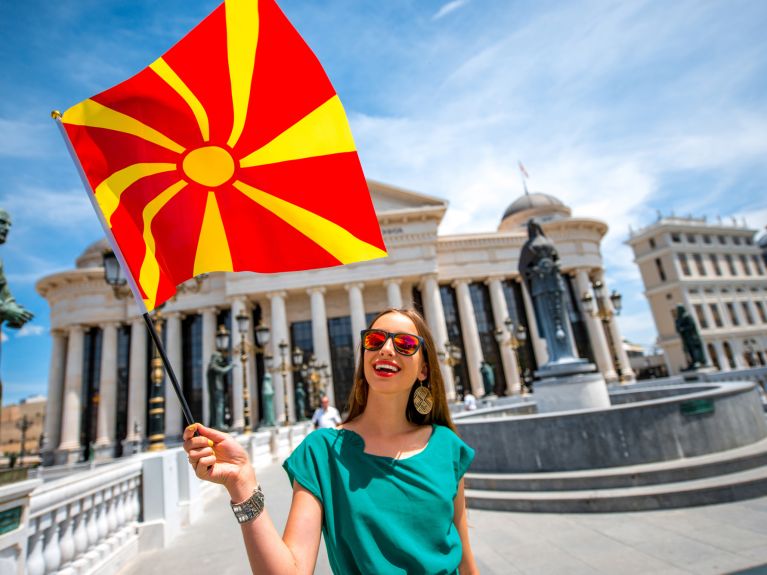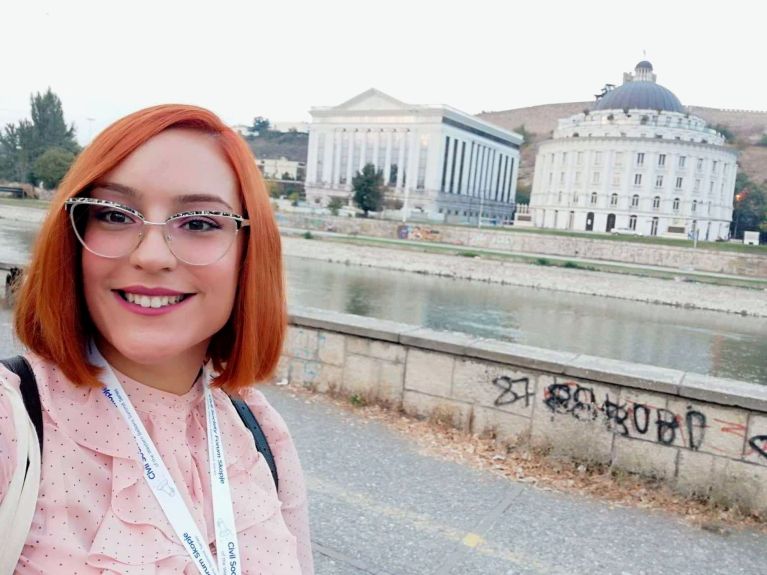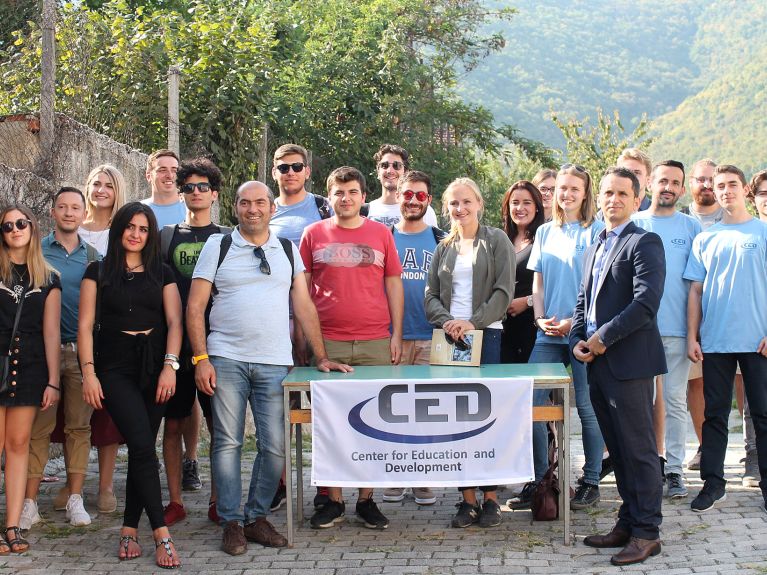Based on the Franco-German model
Greece and North Macedonia have a difficult past. Youth exchange now aims to contribute to reconciliation.

It was the first time that Sofia Svoliantopoulou had been to Skopje, the capital of North Macedonia. When the 28-year-old Greek woman visited the city in October 2018, she was brimming with curiosity: “I had heard lots of stories, but I wanted to go there, talk to people and form my own opinion.” Although Svoliantopoulou grew up in Kozani only 100 kilometres from the Greek-Macedonian border, she did not know the neighbouring country. The Civil Society Forum, a three-day gathering organised by the Friedrich-Ebert-Stiftung (FES), first took the young woman to Skopje. “It was a unique opportunity,” she says. She got to know lots of people, had in-depth discussions, tried the food and explored the city on foot.

Svoliantopoulou’s visit to the neighbouring country is still not a totally ordinary occurence. From 1991 there was an acrimonious naming dispute between the small West Balkan state, which changed its name to the Republic of North Macedonia in January 2019, and Greece, where there is also a region called Macedonia in the north of the country. A compromise was only recently found with the historic Prespa Agreement, but the Greek Parliament still has to ratify the name change. After that, for the first time, North Macedonia gets the chance of joining NATO and beginning EU accession negotiations, both of which were previously blocked by NATO and EU member Greece. However, the political solution, which involved a long and arduous struggle, caused a government crisis in Athens, and the decades-long dispute has left deep divisions. “The name issue is emotionally charged in both societies and has sometimes been misused by populist politicians,” explains Eva Ellereit, director of the FES bureau in Skopje.
The country bureau of the SPD-linked foundation aims to support the reconciliation process at the civil society level through the exchange of young people – following the Franco-German model. This is because many Greeks avoid the country to their north that used to be known on the international stage as FYROM (Former Yugoslav Republic of Macedonia). Conversely, many North Macedonians only travel south for fleeting visits, for example to shop in the Greek port city of Thessaloniki, which is also the capital of the administrative region of Central Macedonia. How can this situation be changed?
Young people have an immense influence on good neighbourly relations.
Reconciliation based on the Franco-German model
Ellereit believes a look into the past can be helpful. After all, for a long time there was also a “traditional enmity” between Germany and France. A friendly rapprochement only succeeded after the Second World War. In 1963 Federal Chancellor Adenauer and France’s President de Gaulle signed the famous Élysée Treaty, which was immediately followed by the foundation of the Franco-German Youth Office. Since that time, according to figures published by the organisation, it has enabled roughly nine million young people from Germany and France to participate in over 320,000 exchange programmes and meetings. “This success story is very well-known in the West Balkans,” says Ellereit. After all, she explains, it is one of the few examples worldwide in which it has been possible to enduringly reconcile neighbouring countries that once had deep animosities.

Building bridges and facilitating contacts
A rapprochement between North Macedonia and Greece is now to succeed using a similar approach. To this end, working with local partners, the FES regularly invites young North Macedonians to Greece and vice versa. The target group of this exchange programme is 18- to 25-year-old students who sometimes engage in voluntary youth work. On the spot they take part in conferences and workshops with local students, take city tours and visit state and civil society institutions. “I was especially surprised at how much both countries have in common,” says Kristina Stankovska, a student from Skopje who recently took part in a Thessaloniki exchange. The Greeks welcomed her with friendship and great openness. In many discussions she noticed a great “desire for an improvement in the current situation”, says the 20-year-old. “The exchange made me realise that young people have an immense influence on good neighbourly relations.”
Ellereit names building bridges and facilitating contact as the central goals of the exchange. There are also plans to continue the programme this year. Interest is great in both Greece and North Macedonia. “We see how the young generation is trying to be part of the solution and not part of the problem.” Nevertheless, she does not believe that the old enmities will be overcome soon: “That remains a task for generations.”
You would like to receive regular information about Germany? Subscribe here to:
